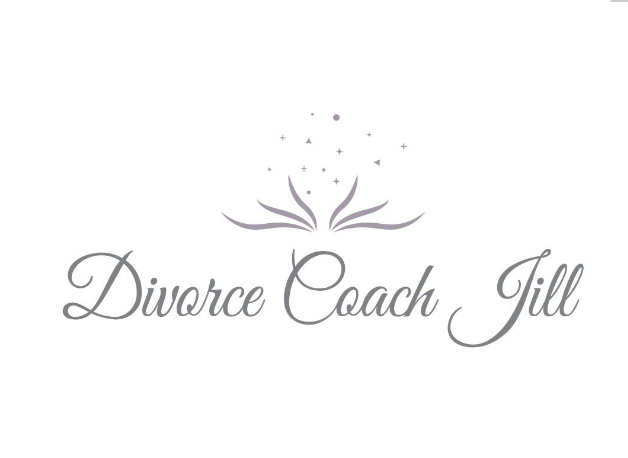|
Whether or not it was your decision to divorce, the end of a marriage brings with it intense emotions. It’s hard to understand how it feels unless you’ve been through it. You’re grieving so many losses - the loss of your intact family, time with your children, your in-laws, friends, your home and more. However, healing is possible, and there are steps you can take to navigate the process. Here are some strategies to help you heal and emotionally recover when you're going through a divorce:
1. Allow yourself time to process your feelings Give yourself time to process the feelings. Don’t make any important decisions or changes right away. Find a way to express your feelings that feels right to you. Therapy, a support group and journaling are all good options. Through acknowledging and processing your feelings, you can begin the healing process. 2. Seek support from loved ones It’s crucial to surround yourself with a support system of friends and family. Reach out to those you trust and lean on them for emotional support. They can offer a listening ear, provide comfort, and remind you that you are not alone. 3. Take care of yourself physically and mentally Divorce can take a toll on your overall well-being, so it's essential to focus on getting enough sleep, eating right, and exercising regularly. Try not to get stuck in negative patterns. Take a walk to get out of your environment and get a new perspective. Additionally, meditation can help you during this challenging time. The benefits of meditation include improved sleep, decreased stress and clear thinking. 4. Don’t rush your healing Healing takes time, and it's important to remember that everyone's process is different. Give yourself permission to heal at your own pace. Avoid rushing into new relationships or making significant life decisions until you feel ready. Work on healing your past wounds, building your confidence and learning about yourself before moving forward. This includes exploring new hobbies, attend workshops or classes, and rediscovering your passions and interests. 5. Practice forgiveness and let go Holding onto anger and bitterness can hinder your healing process. While it may be difficult, practicing forgiveness can be transformative. This doesn't mean forgetting or condoning the hurtful actions that occurred, but rather freeing yourself from the emotional burden and allowing yourself to move forward. Rebuilding your life after divorce offers an opportunity for a fresh start. Envision what you want your future to look like. Set goals, explore new possibilities, and create a vision board or plan for the future. If you can embrace this chance to reinvent yourself, you can create a life that can be better than you’ve ever imagined! If you’re having difficulty moving forward, reach out to Divorce Coach Jill at [email protected].
6 Comments
Vera Chekan
5/1/2024 09:45:04 am
Read For Help With Lost Crypto Reach out Lost Recovery Masters
Reply
Farley Long
6/25/2024 04:41:38 pm
Good work deserves good recommendation, I met a powerful spell caster who is 100% real and powerful. I was heartbroken when my wife left me and moved out of the house. I felt my life was over and my world was crumbling around me. I tried to be strong just for the kids but I could not control the pains that tormented my heart, my heart was filled with sorrow and pain because I was really in love with my wife. I have tried many options but she did not come back, until a friend directed me to Dr Kala, a powerful spell caster and I explained my problem to him and he helped me to get my wife back within 24hrs. Me and my wife are living happily together again, This man is powerful and if you have any problem with your marriage and relationship? Just tell him your situation and he will help you. If you are in need of help to get your love back, you can contact Dr Kala on email: [email protected] or WhatsApp +2347051705853.
Reply
BE CAREFUL of crypto platforms promising huge returns. They lure people into fake programs. I lost 198,450 USD last year. While researching on how to recover my funds, I came across several recommendations on the Bitcoin Abuse Forum about HACKERSTEVE. I contacted him via his email and he helped me recover all my funds. If you’ve also been a victim of financial scams, don’t hesitate to get in touch with him.
Reply
Farley Long
6/25/2024 04:41:16 pm
Good work deserves good recommendation, I met a powerful spell caster who is 100% real and powerful. I was heartbroken when my wife left me and moved out of the house. I felt my life was over and my world was crumbling around me. I tried to be strong just for the kids but I could not control the pains that tormented my heart, my heart was filled with sorrow and pain because I was really in love with my wife. I have tried many options but she did not come back, until a friend directed me to Dr Kala, a powerful spell caster and I explained my problem to him and he helped me to get my wife back within 24hrs. Me and my wife are living happily together again, This man is powerful and if you have any problem with your marriage and relationship? Just tell him your situation and he will help you. If you are in need of help to get your love back, you can contact Dr Kala on email: [email protected] or WhatsApp +2347051705853
Reply
Luna Brian
6/27/2024 04:48:17 pm
HOW I WAS CURED FROM HERPES VIRUS
Reply
KIARA HAHN
7/20/2024 05:22:17 pm
Reply
Leave a Reply. |
AuthorJill Barnett Kaufman is a Divorce Coach, Therapist, Parent Educator and Divorce Mediator. She is an experienced professional who helps clients discover new ways to resolve a variety of challenges when considering divorce, starting the process of divorce or are already divorced. Archives
March 2024
Categories
All
|
|
|
|
Connect with us:
To get more information, click the button below:
For our privacy policy, click here, for our Terms of Use, click here and for our Disclaimer, click here.
|



 RSS Feed
RSS Feed
